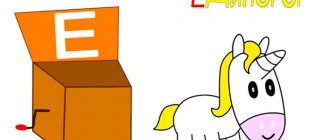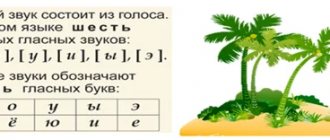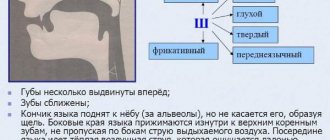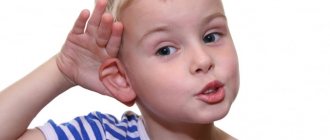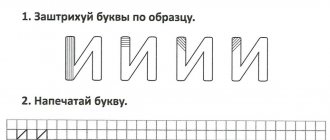Riddles for children starting with the letter E
Here are the needles and pins crawling out from under the bench. They are looking at me. They want milk. (Hedgehog)
There are needles on the back, long and sharp, and it will curl up into a ball. There is no head or legs. (Hedgehog)
A ball is rolling through the forest, It has a prickly side. He hunts at night for beetles and mice. (Hedgehog)
Walking along the path. The forest is carried on the back. (Hedgehog)
Touchy, covered in needles, I live in a hole, under the tree. Even though the doors are wide open, no animals come in to me. (Hedgehog)
The master sewed a fur coat for himself, but forgot to take out the needles. (Hedgehog) I come with gifts. I shine with bright lights. Elegant, funny. I'm in charge for the New Year. (Christmas tree)
What a beauty - Stands, sparkling brightly, How magnificently she is decorated... Tell me, who is she? (Christmas tree)
Prickly, but not a hedgehog. (Ruff)
Funny poems about the letter E for children
Tell me, Letter E, how is your life? The letter E Gives a Report: - Nothing flows. I am always the drummer! - Oh-Yo-Yo, that's it - yes! (A. Shibaev)
A sea hedgehog at the bottom of the sea Sang about a forest hedgehog: Oh, you hedgehog, brother hedgehog. How do you live without the sea? The hedgehog lives in the wilderness of the forest, the Christmas tree is his home... (B. Timofeev)
Why are you, hedgehog, so prickly? - This is me just in case: Do you know who my neighbors are? Foxes, wolves and bears! (B. Zakhoder)
Hedgehog Once I had a dream. Like a squadron of cavalry, Passing along the alley. So he knocked and stomped loudly. That everything around woke up. I myself woke up suddenly. The light is on... I see a hedgehog Under the bed - knock and knock! From his short legs, this stomp, this knock. (A. Volsky)
And the hedgehog ran away at night. Nobody offended him. He was sad already in the morning, He was sad yesterday. What was he, stupid, yearning for? Nobody pestered him. We loved him so much, and stroked him and washed him. But he was curled up and trembling. And then he took it and ran away... We searched all the bushes. Until the darkest darkness And I screamed, And my brother screamed. And the hedgehog hid and was silent. Spiders scurried about in the grass, crickets chirped softly. With native nature in the world. The hedgehog was in his apartment. (Yu. Mogutin)
Worried neighbors Look, look: Five neighbors in the alphabet - Letters g, d, e, e, g - Everyone is grieving for the hedgehog. They always think: “Where is the hedgehog?” You won’t console, You won’t calm down... (A. Shibaev)
The hedgehog and the Christmas tree have very sharp needles. Otherwise, the hedgehog doesn’t look like a Christmas tree at all. (G. Satir)
How is a Christmas tree different from a wolf? Wolves live in the spruce thicket. Christmas trees grow in the spruce thicket. They seem similar to us, and we can easily confuse them. And the wolves walk in a pack, and the fir trees grow in a heap. A wolf can scratch with its paw, and fir trees can be scratched with its paw. Wolves walk quietly, silently, This is the habit of wolves. And the tree, if it doesn’t squeak. He stands silent, as if sleeping. (G. Kopylov)
The little Christmas tree is cold in winter. We took the Christmas tree home from the forest. They hung the beads and began to dance in a circle. Let's have a fun, fun New Year. (3. Alexandrova)
A Christmas tree in icy sparkles, in warm resin tears. Fresh, green, illuminated by the sun. (E. Blaginina)
What grows on the Christmas tree? Cones and needles. Multi-colored balls do not grow on the Christmas tree. Gingerbread and flags do not grow on the Christmas tree, Nuts do not grow in golden paper. (S. Marshak)
Christmas tree If the Christmas tree had legs, it would run along the path. She would dance with us, She would click her heels. The toys would spin on the Christmas tree - Multi-colored lanterns, firecrackers. Flags would spin on the Christmas tree, made of crimson and silver paper. The nesting dolls on the Christmas tree would laugh and clap their hands for joy. Because tonight the New Year is knocking at the gate! New, new, Young, With a golden beard! (K. Chukovsky)
Ira and the hedgehog Ira asks: “Hedgehog, hedgehog!” Will you sew me a dress?” The hedgehog answered from under the tree: “There are no threads - just needles.” (F. Bobylev)
Raccoon and hedgehog The hedgehog washed his ears, neck, and skin on his abdomen in the bathhouse. And the hedgehog said to the raccoon: “Aren’t you going to rub my back?” (G. Vieru)
Lesson summary:
- Pronunciation of new words increases the preschooler’s vocabulary, develops speech and memory.
- Cell exercises develop fine motor skills of the hands.
- Riddles develop children's intelligence, ability to analyze and prove. Teachers use riddles when teaching children to increase interest during complex tasks.
- Poems influence not only the development of memory. It has been proven that if you learn a few lines every day, new neural connections appear in the brain and your overall learning ability increases.
, Competition "Presentation for the lesson"
Tale about the letter E
Hedgehog and brush
All the animals went to bed for the winter, and the hedgehogs lay down in a hole under the tree. But the little hedgehog can't sleep.
Mom! Why are we just sleeping and sleeping... Can I go to my friend the brush? - What are you talking about? You'll still freeze. Sleep!
The hedgehog lay there, fidgeted, fidgeted, waited until his mother fell asleep, and crawled out of the hole. He got out and was surprised. Everything is white and white, and the snow on the Christmas trees sometimes looks like a chicken, sometimes like a hedgehog, and even like a brush!
Oh, how great! But the brush sits in the river and doesn’t see any of this!
He ran to the river, and instead of the river there was only ice, and a hole in the middle.
Ruff, ah ruff! What did I see! Well, ruff!
The hedgehog called for a long time, he was completely frozen. Finally a sleepy ruff emerged:
Well, why are you screaming, won’t you let me sleep? -Are you asleep too? - And how. Until spring. You should go too, huh?
The hedgehog trotted home into a warm hole. I froze all over, ate honey so as not to get sick, and went to bed until spring.
Funny poems about the letter E for children
A clown is riding along the highway on a shiny wheel. For what? For what? - Just for fun! Wish me success. (V. Berestov)
Under the flower, the mother hedgehog began to bathe the hedgehog. Dew drips, drips onto faces, onto eyes. The mother hedgehog will not understand. How to wash their backs. And the hedgehogs walk around with dirty backs for a day or two. At least sit and wait a month. So that the rains begin to fall. Be glad you guys. Not prickly hedgehogs. (G. Vieru)
Blackberry The berry looks good, But go ahead and pick it. All covered in thorns, like a hedgehog. That's why blackberries. Blackberry, blackberry! Oh, so many! Look! Don't be shy, Eat, baby. Afterwards you will treat your mother. We ate blackberries and wanted to catch a sturgeon in the river between the reeds, but we caught three ruffs. (S. Marshak)
The spruce tree in the hollow is hiding something. There is a house for a raccoon there. (B. Timofeev)
The raccoon will not eat until His food is washed. His assistant is the river: It rinses the food and rubs it lightly. And then he eats to his fill. The raccoon is a lover of cleanliness. He doesn’t eat anything unwashed... What about you? (V. Lunin)
Blackberry-strawberry (berry patter) If you haven’t lived Near a blackberry tree. But if you lived Near a strawberry field, - That means strawberry jam is familiar to you, and not at all familiar blackberry jam. But if you lived Near the blackberry tree, And if you did not live Near the strawberry tree, That means you are familiar with blackberry jam, and not at all with the familiar strawberry jam. But if you lived Near a blackberry tree, And if you lived Near a strawberry tree, And if you didn’t spare time in the forest, That means excellent blackberry jam. You ate strawberry jam every day. (M. Yasnov)
If a raccoon climbed into a blackberry. We can barely save him from the needles. If the hedgehog climbed into the blackberry, then it is still unknown. Who will win. The raccoon has no need for summer. He bares his teeth in the sun. It's not sweet on a hot day. Who doesn't take off their fur coats? (Ya. Akim)
There is a raccoon, and the raccoon has a raccoon coat. The animals are chilly, but you can’t find him through his fur coat, neither the snowstorms nor the cold. Know he lives for himself, does not grieve! (A. Pudval)
This little animal is quite harmless. True, her appearance is not enviable. People called the poor thing echidna. People, come to your senses! Shame on you?! (B. Zakhoder)
Tale about the letter E
Laundry “Egor and Sons” On the bank of a forest river, under the sign “Laundry - Egor and Sons”. Every day, early in the morning, a family of raccoons sat down and the noisy washing began. But somehow dad Yegor came up with the idea to name his sons with ancient names that he read in his grandfather’s book. The first son was renamed Elistratus, the second - Epiphanius, and the youngest from Petka turned into Evlampius. And the laundry got up. In the morning, dad Egor began to remember whose name was:
This...what's his name? What did I call you? - he asks the elder. - On E somehow... Elyuley, or what? - No, not Elyuley. And where did that name go? I put a cross here.
By evening he can barely find his cross in the book, but there’s no time to wash it! Animals walk around in unwashed clothes, and some even without clothes at all. But one day, while Yegor’s dad wasn’t around, the neighbor’s hedgehog sarcastically asked the younger raccoon:
Petka or whatever your name is?.. Evpatorii! Is it hard to wash my dad's book? - Yes?! Nonsense!
And fearing to disgrace himself, Petka washed out the book so diligently that he washed away all the letters. Dad Yegor had to name his sons as before, and the laundry started working.
Continue the sentence
Good-natured, businesslike. All covered with needles. Can you hear the patter of nimble feet? This is our friend... (Hedgehog).
They grew across the river, They were brought to the holiday on twigs - needles. What is this? ... (Christmas trees.)
The whole family goes for a walk at night along the paths. Hedgehog-father, hedgehog-mother And child... (Hedgehog).
Fur coat - needles. It will curl up - prickly. You can't take it with your hand. Who is this? ... (Hedgehog)
Well, the dress: All needles. They wear it forever... (Yolki).
Prickly, but not a hedgehog. Who is this? ... (Ruff.)
The gray hedgehog was very quiet and the hedgehog too. And they had a child - Very quiet... (Hedgehog).
Lesson summary:
- Pronunciation of new words increases the preschooler’s vocabulary, develops speech and memory.
- Cell exercises develop fine motor skills of the hands.
- Riddles develop children's intelligence, ability to analyze and prove. Teachers use riddles when teaching children to increase interest during complex tasks.
- Poems influence not only the development of memory. It has been proven that if you learn a few lines every day, new neural connections appear in the brain and your overall learning ability increases.
Summary of a literacy lesson in the preparatory group “Letter E, sound [E]”
Abdulova Dzhume Sirazhutdinovna
Summary of a literacy lesson in the preparatory group “Letter E, sound [E]”
Goal: to consolidate the concept of the letter E
Objectives: to introduce children to the letter E, to improve the skills of sound analysis of words, to consolidate the visual image of the letter, to develop phonemic hearing, memory, and attention.
Materials: demonstration material, workbooks part 2, a simple pencil, colored pens and pencils, tumblers, felt-tip pens.
I. Organizational moment
Educator: Let's remember all the vowel sounds and do gymnastics for our lips.
A vowel is a sound that is pronounced unhindered: none of the organs of the articulatory (speech) apparatus is an obstacle to its pronunciation.
Vowel sounds can be pronounced for a long time, even sung: a-a-a., u-u-u. There are only six vowel sounds: A, O, U, I, Y, E. (exercise being performed)
Educator: We have already studied these sounds and letters. But there are more vowel letters in the Russian language than vowel sounds - there are 10 of them. The fact is that in the Russian alphabet there are iotated vowel letters. Each letter can represent one or two sounds. These letters represent two sounds in the following positions:
- at the beginning of a word
- after a soft sign
- after a hard sign
- after a vowel
In the back pocket there are tumblers with an asterisk (*) - vowels of the second row. Vowels of the second row of the magic letter. This is because they soften the preceding consonants
Educator : -Guys, today we will get acquainted with the letter –E-, denoting the vowel sound –E-ye-. This tricky sound when pronounced produces not one, but two sounds -E-ye-, for this reason the letter -E- is nicknamed greedy because when pronounced it has two sounds.
Educator: -Try to pronounce the sound –E-ye-.
Educator: You hear not one, but two sounds
Educator : the sound -E-ye- vowel, when pronouncing the sound -E-ye- - the teeth are brought together in a smile, the lips are close to the teeth, the tip of the tongue is behind the lower incisors, the air stream goes through the mouth; the vocal cords are tense, as a result of which a voice is formed and I pronounce the sound - E-ye
Educator: Today the one whose name begins with E will go to the board. That’s right, this is our Eva
II. Main part.
1. Game exercise “Put the letter in her apartment”
Objectives: consolidate knowledge about the studied sound and letter; learn to choose the right and left front house, count the floors in order, starting from the bottom; explain the choice of your decision based on knowledge about sound.
Educator: Eva, determine the place of the given sound in the word (at the beginning, in the middle, at the end of the word);
- Fill in the corresponding cell in the diagram under the picture with the color we use to denote this sound
Educator: you and I have two red tumblers. A tumbler with an asterisk for the vowels of sorceresses, which soften the preceding consonants; we will place them in the second row of the house. And vowels that do not soften the preceding consonants will be written in the first row
Educator: which tumbler we choose (red).
Children's answers : red with an asterisk
Educator : why red with an asterisk?
Children's answers: Because the letter E softens the consonants and when pronounced it has two sounds.
Educator: That's right, we take the colored letter E from the owner's pocket and place it on the right on the second floor, next to the letter E. And now, we do it from our notebooks. (Work in the notebook Elena Astafieva: We play, read, write. Workbook No. 2. Federal State Educational Standards) children write the letter E., paint the roof of the house and the tumbler in red, write the letter E in their pocket.
Educator: Determine the place in the word (at the beginning, in the middle, at the end of the word); Explain why you wrote the letter in this particular color?
Eve:
Spruce
-E-vowel, located at the beginning of the word, written in red
Broom-
E is a vowel, located in the middle of a word, written in red
Dress
–E-vowel, located at the end of the word, written in red
Educator : - Draw objects with the given sound yourself (in the empty cells on the right); - Show on the diagram under each picture the place in the word and its characteristics (beginning, middle or end of the word) and I will write the letter
Eva : E-vowel, located at the beginning of the word, written in red
Egor
E-vowel, located at the beginning of the word, written in red
Chalk-
E-vowel, located in the middle of the word, written in red
Educator: Well done guys, you did it all
2. Game exercise “Continue according to the example”
Goals: consolidate knowledge about the letter. Training a child's visual memory
3. Exercise “Continue the ornament”
Goal: continue according to the example; develop visual memory
4. Exercise “Finish the drawing”
Goal: develop hand motor skills
5. Game “What kind of rivers are these?” (Rebuses)
Goals. We train the ability to solve various types of puzzles. We reinforce the child’s knowledge of the rule about writing the names of rivers with a capital letter. We train in composing sentences for a given scheme, performing sound-letter analysis and synthesis. We consolidate knowledge about our hometown and its rivers. Progress of the game. The child consistently solves puzzles, signs the guess words and analyzes them, following sound and syllable patterns. The adult asks the child to explain (or explains himself what each word means (Neva, Moika, Fontanka), draws the child’s attention to the fact that the names of rivers are written with a capital letter. The child analyzes the sentence diagram and fills in the missing words: Neva, Moika, Fontanka are rivers (Here the child himself remembers the rule for writing the names of rivers with a capital letter.)
6. "My Hometown"
Goals. We learn to correctly write the name of our hometown (St. Petersburg). Using this word as an example, we develop the ability to perform sound-letter analysis and synthesis, using knowledge about the function of the letter E. We train the ability to analyze a sentence by the number of words. We consolidate knowledge about writing the first word in a sentence and the names of cities with a capital letter, about placing a punctuation mark (period) at the end of a sentence.
Progress of the game . With the help of an adult, the child performs a sound-letter analysis of the word Petersburg, inserts the missing letters, generalizes them (vowels); After reading the sentence, he carries out its diagram, commenting on his actions. It is necessary to pay attention to the child’s explanations about the spelling of the words Moy and Petersburg with a capital letter. In conclusion, the child traces or draws one of the monuments of his hometown and talks about this monument.
7. Game "Travelers"
Goals. We develop the skill of syllable reading. When reading, we achieve a smooth transition from syllable to syllable. We consolidate knowledge about writing city names with capital letters.
We develop sound-letter analysis by continuing to train the child in selecting a sound pattern for a word. We consolidate knowledge about the letter E [ye]: softening the previous consonant and designating two sounds at the beginning of a word (Yerevan).
Progress of the game. The child reads the names of cities using arrows, orally performing their sound analysis; selects a sound pattern corresponding to the given name, writes this word above the selected pattern and colors the pattern. (The child's comments on writing the names of cities with a capital letter are necessary.) You can invite the child to remember Russian cities whose names contain the letter E (Elets, Belgorod, Zelenogorsk, Chelyabinsk, etc.).
Bottom line
-How many vowels are there in a sound?
-How many vowels are there in the alphabet?
-Which letter did we study?
-Whose name begins with this letter?
Educator:
Find out names starting with this letter, at home with your parents, and the letter E will be looking forward to them tomorrow morning.
Everyone did very well.
